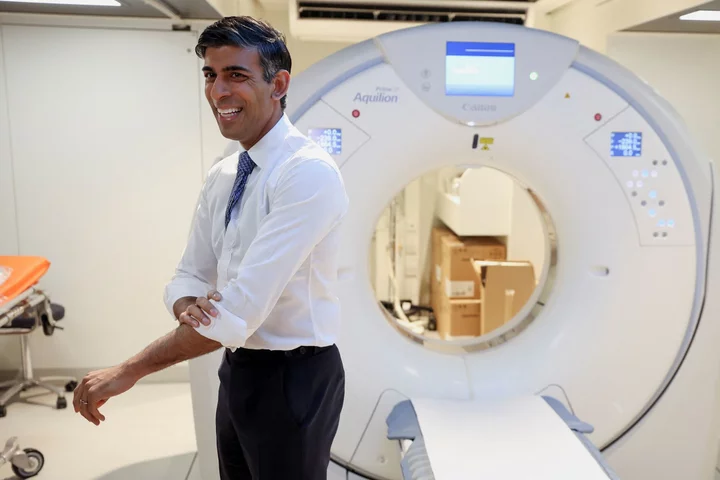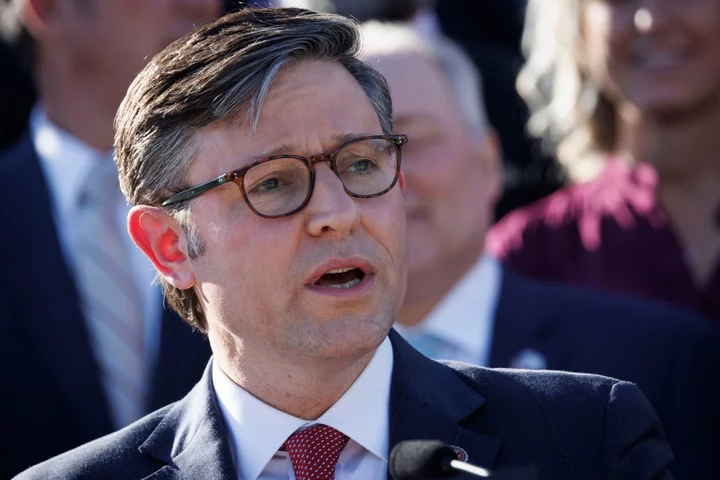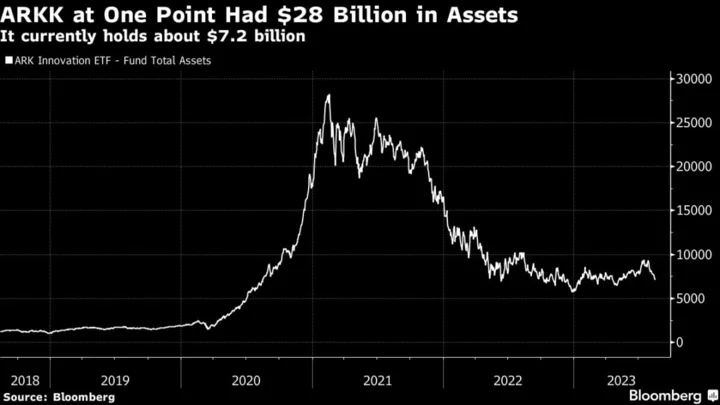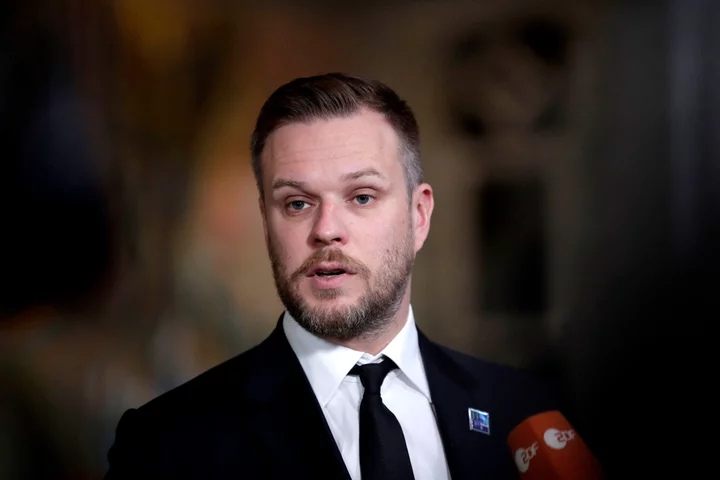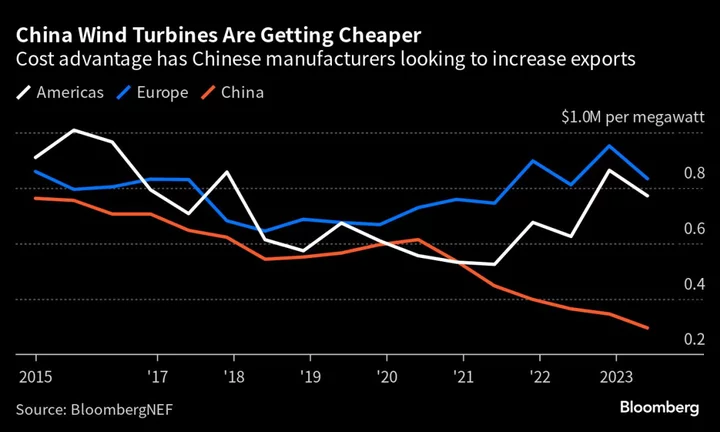Rishi Sunak unveiled his long-awaited plan to recruit record numbers of doctors and nurses, as he seeks to win back voters who blame his ruling UK Conservatives for the crisis facing the National Health Service.
The blueprint to both recruit and retain NHS workers could see an extra 60,000 doctors, 170,000 more nurses and 71,000 more health staff in place by 2036-37, NHS England said in a report on Friday. That will help the service, which assesses and treats everyone in the country an equivalent ten times a year on average, meet the challenges of a growing and aging population, it said.
With the next general election due by January 2025 at the latest, Sunak’s NHS workforce plan is effectively a Conservative Party manifesto pledge, given there is little time for it to yield major benefits before voters go to the ballot box. It is an attempt to seize the agenda from the poll-leading opposition Labour Party, which has already set out its own plans to boost NHS numbers.
Read more: Britain’s Cherished NHS Wrestles With Its ‘Reform or Die’ Moment
“Since the NHS was founded, it has struggled with staffing shortages and a lack of long-term workforce planning,” Sunak, who holds a press conference Friday on the plan, said in a statement. “The 15-year long term workforce plan will meet the workforce requirements the NHS has for the future.”
Yet his pledge to boost NHS numbers could also play into Labour’s hands by taking a favorite Conservative attack line — that Labour overspends and is too wedded to the public sector — off the table. Having founded the NHS after World War II, Labour typically retains more public trust to protect the service.
The challenge facing Sunak over voter skepticism is exacerbated by the deep-rooted problems within the NHS that have taken hold during 13 years of Conservative-led governments. Waiting lists for routine hospital treatment in England reached a record 7.4 million this month, while an unprecedented wave of industrial action has laid bare the dire state of workforce morale.
There are more than 110,000 vacancies, as more staff leave the NHS to work in countries including Australia and New Zealand. Even the government predicts that number could grow to 360,000 by 2037 without action.
The UK has “strikingly low levels of key clinical staff” compared to 19 similar countries, the King’s Fund health think tank reported this week. Britain has fewer doctors and nurses per head than most of its peers, and relies more heavily on internationally trained staff, it said.
“We haven’t yet seen the detail of how this funding will be phased – and whether it will be sustained – over many years,” Richard Murray, chief executive of the King’s Fund, said of the government’s statement on Thursday. “Delivery of the wider ambitions of the plan will need sustained investment, and therefore will rest on any future governments throwing their weight behind the strategy, to give the NHS the support and stability it needs.”
Sunak sees resetting the narrative on the NHS as essential for the Tories to have a chance of holding onto power at the next election. He has made cutting waiting lists one of the five pledges he wants voters to judge him on.
Read More: Sunak Risks Failing on His Five Key UK Pledges at Halfway Point
The workforce plan, released a week before the 75th anniversary of the NHS, is the “largest single expansion in NHS education and training in its history,” Sunak said in the NHS statement. Along with the boosted numbers, the proposal is for trainees to be placed on wards and in practices sooner and for new medical schools to open in areas with the biggest staffing shortfalls.
The aim is to reduce the bill for agency workers which could save around £10 billion ($12.6 billion) between 2030-31 and 2036-37, NHS England said. The government has promised £2.4 billion of additional funding over five years for the expansion of education and training.
The blueprint, delayed for months amid speculation of a row between the Treasury and health department over costs, will be scrutinized carefully by NHS leaders. They have warned that resolving shortages is not only about recruiting new staff in the coming years, but working harder to retain existing workers.
The plan was backed by medical bodies including the Royal College of GPs representing family doctors, NHS Providers which speaks for health trusts, and patients’ group Healthwatch England. Many, however, were keen to see further detail and some warned over the lack of plans on social care — where elderly and vulnerable people are looked after in the community.
“The absence of proposals to mend social care is perhaps the biggest gap,” said Sara Gorton, head of health at the Unison union. “Without action to fix care, the NHS will have to go on picking up the pieces of that broken system.”
But the timeframe set out in the government’s plan highlights the biggest problem facing Sunak: how to stay in Downing Street long enough to enact it.
Read More: Only Labour Can Fix the NHS, Says Boris Johnson’s Vaccine Czar
His promise to cut waiting lists is being undermined by the labor strikes, which have led to about 600,000 canceled hospital appointments since December.
While the industrial action by nurses has ended, junior doctors in England will strike for five consecutive days over pay next month — the longest single walkout in NHS history. Senior doctors in England, known as consultants, also plan to strike for two days next month.
The NHS plan is part of Sunak’s push to brand his government as a fresh start. Polls indicate, however, that is not working and it’s the Tories’ legacy since 2010 that voters are fed up with.
“They should have done this a decade ago,” said Labour’s health spokesman Wes Streeting. “Then the NHS would have enough staff today.”
(Updates with Sunak comment in fourth paragraph, details of plan throughout.)

